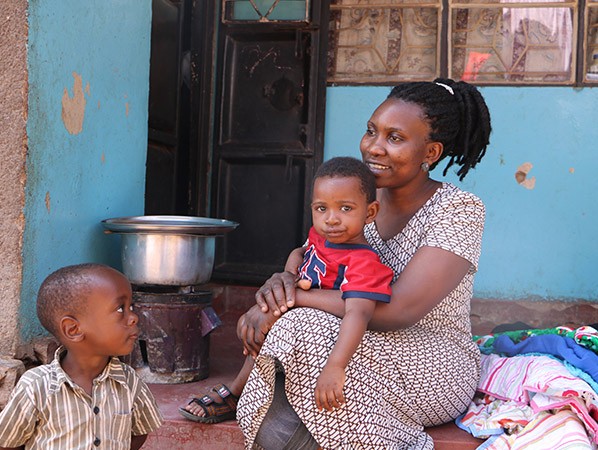
Sustainability is more topical than ever. Supermarkets also have sustainability high on their agenda, consumers are asking more and more critical questions and the packaging material is under a magnifying glass. The Dutch supermarkets feel responsible for their climate impact and are collectively committed to less and more sustainable packaging. As a result of current events, new legislation and objectives, an increasing demand for climate-neutral packaging for supermarkets is being signalled by Bunzl Retail & Industry and Climate Neutral Group. But why do supermarkets more often opt for climate-neutral packaging? And how does climate-neutral packaging arise?
Packaging has important functions in terms of protection, shelf life, convenience and food safety, but it also has an environmental impact. The CBL has presented the joint objectives of the supermarket sector: 20% less packaging material in the supermarket by 2025, 95% of the packaging is recyclable, plastic packaging material consists of (at least) 50% recycled PET and paper and cardboard is 100% FSC and PEFC certified. Packaging is being replaced by sustainable alternatives and is increasingly seen as an important means of communication. Packaging lends itself perfectly to information on sustainability and information on sustainable behaviour.
Annelies Clements, Business Development Manager at Bunzl Retail & Industry, responds to the situation: "A great deal is currently happening in the field of sustainability. The food retail sector is constantly changing. What is current today may be different tomorrow. Knowledge is required. We are constantly being asked by supermarket chains to discuss and support their sustainable packaging policy. We offer supermarkets independent advice on sustainable packaging, at policy, process and product level, and we can supply everything. We can also advise and relieve you of any worries you might have when it comes to creating climate-neutral packaging. We are receiving more and more requests for this. Supermarkets want to experience and create a distinctive position, among other things by means of packaging with a story. Climate-neutral packaging is the answer to this question. And, very importantly, the consumer is now really ready for this, the consumer is asking for it. In order to realise climate-neutral packaging concepts, an expert, transparent and official approach is required. Our partnership with Climate Neutral Group plays an important role in this."
Mark Huis In 't Veld, Senior Carbon Advisor at Climate Neutral Group, advises companies on taking sustainable and climate-neutral steps and works closely with Bunzl. Mark: "Together with Bunzl Retail & Industry we advise supermarkets on sustainable opportunities and the possibilities to make packaging climate-neutral. This can vary from bowls for ready-made and fresh meals to bread and pastry packaging to bags and delivery boxes. In principle, each packaging can be made into a climate-neutral variant. Supermarket chains Dane and Coop, for example, were the first supermarkets to switch to a climate-neutral variant of the well-known plastic shopping bag. Together with Bunzl, we supervised the entire process."
Climate-neutral packaging is possible according to the officially recognised standard 'Climate Neutral Guaranteed' of Climate Neutral Group. This process verifies three steps: calculating the carbon footprint, reducing the carbon footprint and offsetting the remaining emissions. The climate impact starts with gaining insight into the CO2 emissions. Using an LCA (Life Cycle Assessment), Bunzl maps out the environmental impact of a product throughout its entire life cycle, from raw material to end product. This provides insight into the consumption of fossil energy and fuel. Concrete actions are then determined to save on the consumption of this fossil energy and fuels, for example by using fewer and recycled raw materials. The remaining emissions are then compensated by investing in climate projects that reduce the same amount of CO2 elsewhere in the world. Mark Huis in 't Veld: "Think, for example, of small-scale biogas projects in Cambodia or Tanzania or clean cookstovers projects in Uganda or Kenya. This compensation gives the local population access to cleaner energy, better health, welfare, education and employment. This reduces emissions to zero and the product is therefore climate-neutral. It is important that the climate compensation is done through certified climate compensation projects. These projects are audited annually."
Annelies Clements adds to the list: "An important difference with other methods is that supermarkets are allowed to use the Climate Neutral Guaranteed Quality Mark of Climate Neutral Group on their packaging. This means that the calculation of the climate impact has been done according to official and recognised methods and concerns the entire chain. In short, every step in the process towards Climate Neutral Guaranteed is carefully tested against the standard. The Climate Neutral Guaranteed logo also supports communication about this. It shows that the results of the efforts actually contribute and are significant."
Climate-neutral packaging means having an eye for a clean world, a healthy future and meeting the requirements for sustainable operations and production. Bunzl Retail & Industry and Climate Neutral Group now handle several requests from chains that have questions about packaging, disposables and the climate-neutral possibilities. Annelies Clements: "Together we like to make the world a little cleaner."
Source: © Bunzl